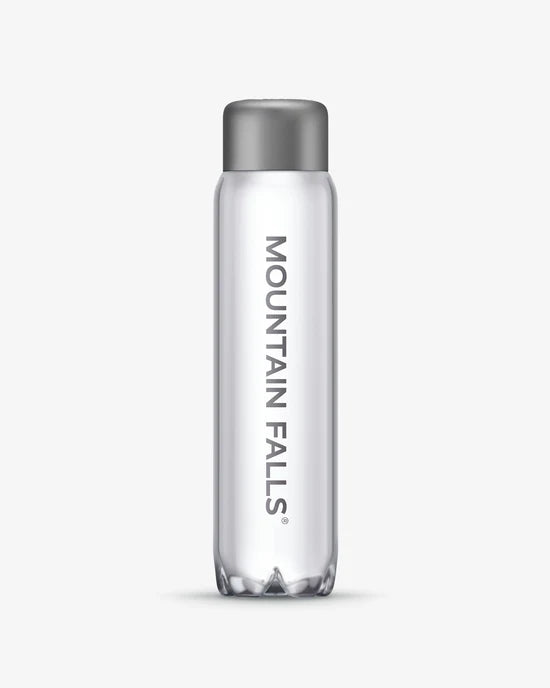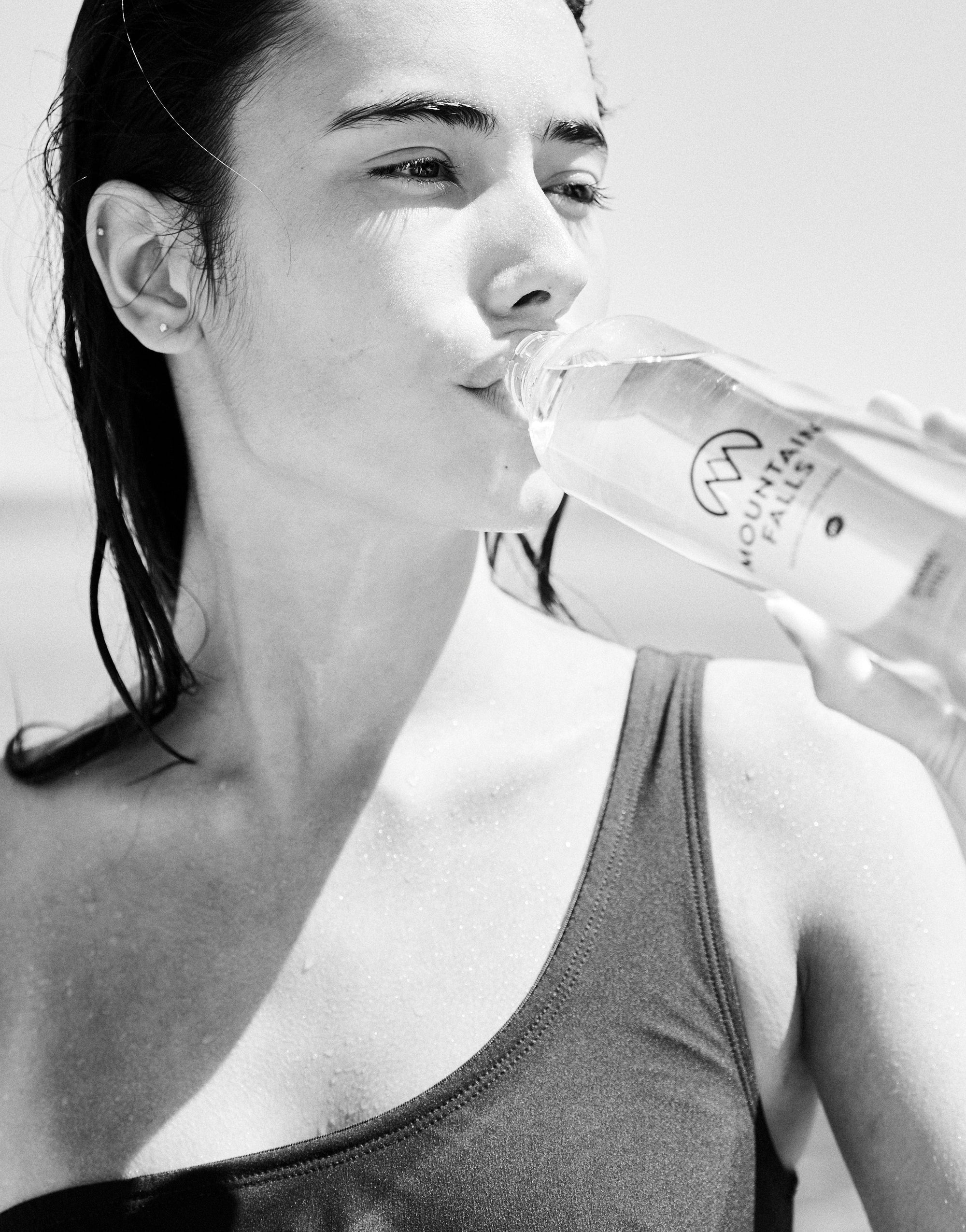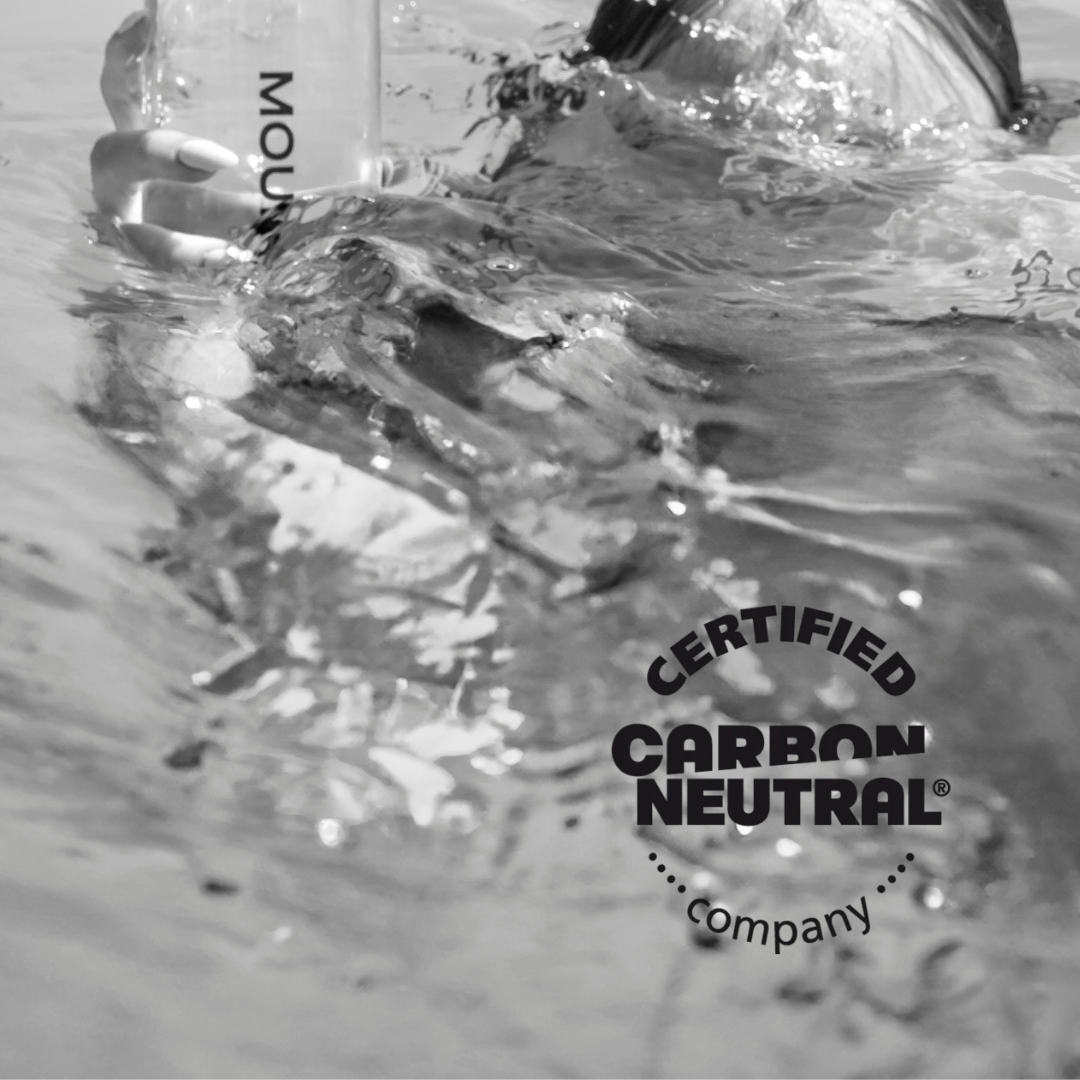Navigating the fizzy landscape of carbonated beverages can often feel like a daunting task, especially when you're trying to distinguish between soda water and sparkling water. With a plethora of options available on the market, it's crucial to understand what sets these two popular choices apart. At the heart of the debate lies a simple yet significant difference: the presence of added ingredients. While both may tickle your taste buds with their effervescence, knowing what's in your bottle could enhance your hydration experience.
In South Africa, where the appreciation for quality and natural ingredients is ever-growing, the distinction becomes even more pertinent. Whether you're reaching for a refreshing drink on a hot day or seeking the perfect mixer for your sundowner, the choice between soda and sparkling water is not just about taste but also about health and lifestyle preferences. Let's dive into the bubbles and uncover what truly differentiates these carbonated contenders.
Key Takeaways
-
Soda Water vs Sparkling Water: The primary distinction lies in their content and production; soda water often has added minerals and is artificially carbonated, while sparkling water, especially types like sparkling mineral water, is naturally carbonated and contains minerals absorbed as it passes through underground rocks.
-
Health Benefits: Opting for naturally sourced sparkling water can offer higher concentrations of beneficial minerals like calcium and magnesium, which support bone health and regulate muscle function, over soda water which may not provide the same level of natural health benefits.
-
Environmental Impact: Choosing sparkling water, particularly brands that source water naturally and use recyclable packaging, can significantly reduce carbon footprints and promote environmental sustainability compared to the more industrially produced soda water.
-
Culinary Practices: In South Africa's culinary scene, soda water is utilised as a leavening agent and to add lightness to batters, while sparkling water is preferred for its natural purity and enhancing qualities in drinks and as a palate cleanser, reflecting the country’s health-conscious trends and rich biodiversity in food preparation.
-
Personal Preference and Lifestyle: The choice between soda water and sparkling water ultimately boils down to personal preference, driven by taste, health considerations, and environmental awareness, encouraging consumers to make informed decisions that align with their lifestyle goals.
Understanding Soda Water
In the context of the ongoing debate on soda water vs sparkling water, especially within South Africa, it's essential to clarify what sets soda water apart. Commonly known as soda water or carbonated water, this beverage sees its origins in a straightforward manufacturing process where carbon dioxide gas is dissolved under pressure in plain water. This procedure introduces the fizz and bubbles characteristic of soda water, offering a refreshing sensation that distinguishes it from its still counterparts.
Soda water sometimes contains added minerals, such as sodium bicarbonate, sodium chloride, or potassium sulfate, to enhance its flavor profile. In South Africa, a region acclaimed for its appreciation of natural and quality ingredients, this aspect of soda water manufacturing garners particular attention. Consumers are becoming increasingly discerning, opting for soda water brands that prioritize not just the effervescence but also the mineral content that can contribute to the overall taste and potential health benefits of the water.
When comparing soda water vs sparkling water, it's crucial to note that while both are carbonated, they differ mainly in their source and treatment. Sparkling water, often derived from natural springs or wells, inherently contains minerals and is carbonated either naturally from the source or artificially. In contrast, soda water is more of a creation, designed to mimic the effervescent quality of naturally carbonated waters but with a more controlled and consistent mineral content.
In South Africa's evolving beverage market, where there's a growing trend towards health-conscious consumption, the choice between soda and sparkling water isn't just about quenching thirst. It's about choosing a drink that aligns with lifestyle preferences, whether it's for hydration, cocktail mixing, or simply enjoying a refreshing, bubbly beverage without added sugars or artificial flavors.
Understanding the difference between soda water and sparkling water, including their formulation processes and the inclusion of minerals, can significantly enhance your beverage experience. It allows you to make informed choices based on your personal health goals and taste preferences, fostering a deeper appreciation for the variety and quality of carbonated waters available in the market.
Exploring Sparkling Mineral Water
In your journey to differentiate between soda water and sparkling water, understanding sparkling mineral water is crucial. Unlike soda water, which often involves the addition of carbon dioxide and minerals in a manufacturing setting, sparkling mineral water comes from natural springs or wells, boasting a unique set of minerals that it acquires as it passes through underground rocks.
Sparkling mineral water, particularly in the South African market, is cherished not only for its refreshing effervescence but also for the natural minerals it contains. These minerals, such as calcium, magnesium, and potassium, can contribute to your daily nutritional intake. The appeal of sparkling mineral water in South Africa lies in its blend of natural purity with the invigorating experience of carbonation, a trait that sets it apart from soda water.
When examining what's the difference between soda water and sparkling water, one notices that the latter's carbonation can be naturally occurring or added during bottling to match the naturally carbonated level found in the source. This distinction is significant for those who appreciate the subtleties in taste that come from the water's origin. South African brands like Mountain Falls embody this by offering sparkling water directly sourced from mountain springs, allowing you to enjoy the crisp taste of nature with every sip.
As you navigate the soda water vs sparkling water debate, remember that the choice often boils down to personal preference. If you lean towards natural products, sparkling mineral water might align more closely with your lifestyle preferences and health goals. Its naturally derived minerals and carbonation offer a unique taste experience that manufactured soda water might not replicate.
In essence, whether you're hosting a dinner party or simply seeking hydration, sparkling mineral water provides an elegant and health-conscious option. With its roots in nature and a taste that's both refined and refreshing, it's a staple in the South African beverage landscape that caters to a discerning palate.
Health Benefits
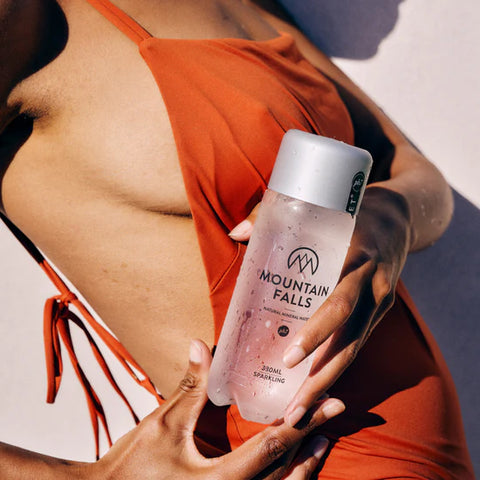
When comparing soda water vs sparkling water, particularly in a South African context, it's essential to delve into the health benefits that each offers, helping you make an informed choice for your well-being. Sparkling water, especially when sourced naturally from springs, stands out for its health advantages. Products like those from Mountain Falls exemplify the benefits of choosing natural sparkling water, drawing directly from mountain springs in South Africa, which imbues the water with unique minerals.
Minerals such as calcium and magnesium are found in higher concentrations in naturally sourced sparkling water. Calcium supports bone health, while magnesium aids in regulating muscle and nerve function, blood sugar levels, and blood pressure. These naturally occurring minerals make sparkling water a beneficial choice for hydration and overall health.
In contrast, soda water, despite being artificially carbonated and sometimes enhanced with added minerals, may not always offer the same health benefits. It's important to note that while both soda water and sparkling water aid in hydration, the latter's natural mineral content can contribute more significantly to your daily nutritional intake.
It’s crucial to consider the source of your sparkling water. Brands that provide naturally sourced sparkling water, such as Mountain Falls, ensure that you're not only enjoying the effervescent taste but also gaining the health benefits of the minerals that are naturally filtered and imbued within the water during its journey through underground aquifers.
While hydration is key to maintaining health, the choice between soda water and natural sparkling water can impact your overall nutrient intake. Opting for sparkling water, originating from natural springs, enriches your diet with essential minerals, making it a preferred option for those mindful of health benefits without compromising on taste.
Incorporating naturally sourced sparkling water into your daily routine offers a refreshing way to stay hydrated and supports a lifestyle focused on health and wellness. Make an informed choice, understanding the difference between soda water and sparkling water, to enhance your hydration practices with the added benefit of natural minerals.
Environmental Impact
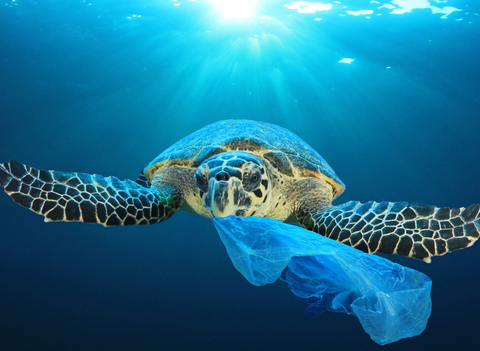
When considering the environmental impact of soda water vs sparkling water, it's crucial to acknowledge your role in promoting sustainability. Opting for sparkling water, especially those sourced from natural springs in South Africa, like Mountain Falls, heavily influences the reduction of carbon footprints associated with artificial carbonation processes. The process of naturally sourcing sparkling water does not require the artificial injection of CO2, unlike soda water, thereby decreasing energy usage and emissions.
Moreover, the packaging plays a significant role in environmental consequences. Sparkling water companies that focus on sustainability, often use recyclable packaging, reducing waste and further encouraging environmental stewardship. On the other hand, soda water, frequently marketed for mass consumption, might not always prioritise eco-friendly packaging, leading to higher plastic and waste output.
Transportation is another aspect where sparkling water distinctly benefits the environment, particularly when choosing local brands like Mountain Falls. Sourcing sparkling water from local springs limits the need for long-distance transportation, significantly reducing greenhouse gas emissions compared to soda water, which may be shipped from far-off manufacturing plants.
Additionally, supporting local businesses that source sparkling water naturally can also contribute to the conservation of natural habitats. These businesses often have a vested interest in maintaining the pristine condition of their water sources, which can include efforts to preserve surrounding environments. In contrast, the industrial production of soda water typically lacks this element of natural preservation.
By choosing sparkling water over soda water, you're not only opting for a healthier hydration option but also contributing positively to environmental sustainability. Your choices can help foster a market that values eco-friendly practices, leading to a greater impact on the preservation of natural resources and reduction of pollution.
Usage in Culinary Practices
In South Africa's vibrant culinary scene, the nuanced differences between soda water and sparkling water come to the fore, particularly in how these beverages are incorporated into culinary practices. Soda water, with its addition of sodium bicarbonate, finds its place in both traditional and modern South African kitchens, not just as a thirst quencher but as a versatile culinary ingredient.
When it comes to baking, soda water serves as a leavening agent, making doughs and batters lighter and more digestible. In contrast, sparkling water, often preferred for its natural sourcing and mineral content, like the varieties provided by Mountain Falls, enhances the dining experience when used as a base for mocktails or as a palate cleanser between dishes. The effervescence of sparkling water adds a refreshing dimension to beverages without the added sodium, aligning with the health-conscious trends prevalent in the country.
Restaurants and home cooks alike utilise soda water to add lightness to tempura or pancake batters, taking advantage of its carbonation to create a crispier texture. Meanwhile, sparkling water, with its fine bubbles and balanced mineral content, elevates the sensory qualities of cocktails and non-alcoholic drinks, integrating seamlessly with the natural flavours of fruits and herbs indigenous to South Africa's rich biodiversity.
The choice between soda water and sparkling water extends into the realm of mixology, where the former's slight alkalinity can neutralize the acidity in certain cocktails, while the latter's subtle mineral notes can complement and enhance the overall flavour profile of a drink. From a whiskey and soda to a refreshing mocktail garnished with Cape gooseberries or spekboom, the decision between soda water and sparkling water impacts the taste, texture, and aroma of each concoction.
Both soda water and sparkling water play integral roles in South African culinary practices, each offering unique benefits that cater to the diverse preference of the country's gastronomy aficionados. Whether one is crafting a delicate batter or curating a sophisticated beverage menu, the selection between soda water and sparkling water is crucial, highlighting the evolving dynamics of culinary excellence within the South African context.
Conclusion
Choosing between soda water and sparkling water boils down to your preferences and needs. If you're leaning towards enhancing your culinary creations with a versatile ingredient, soda water's your go-to. However, if you're aiming for a natural touch with added health benefits, sparkling water, especially brands like Mountain Falls, will not disappoint. Both options offer unique advantages, from improving hydration with essential minerals to elevating the taste and texture of your dishes. As South Africa's culinary scene continues to evolve, incorporating these waters into your kitchen can reflect a commitment to quality and innovation. Remember, the right choice can significantly impact your dining experience, making every sip and bite a testament to your culinary prowess.
Frequently Asked Questions
Is soda water and sparkling water the same?
No, soda water and sparkling water are not the same. The key difference is that soda water usually contains bicarbonate soda in addition to being carbonated, whereas sparkling water is simply carbonated without added bicarbonates.
Why do people drink soda water?
People often drink soda water for its refreshing carbonated texture, which offers a similar sensation to soft drinks without the unhealthy ingredients. It can also help satisfy soda cravings in a healthier way.
What is healthier, soda water or sparkling water?
Generally, sparkling water is healthier, particularly if it is unflavored and unsweetened. Sweetened sparkling waters can add unnecessary sugars to your diet, potentially leading to tooth decay. However, plain sparkling water has minimal effects on dental health, unlike sugary sodas.
Is it okay to drink soda water every day?
Yes, it's okay for most people to drink seltzer water daily as a fun hydration method. However, those with gastrointestinal conditions, sensitive teeth, or a low appetite should monitor their intake and adjust if necessary.
Is it good to replace soda with sparkling water?
Replacing soda with sparkling water is a healthier choice as it provides hydration without the adverse effects of regular or diet sodas. Hydrating adequately is crucial, and sparkling water can help meet those needs while reducing hunger often mistaken for thirst.

